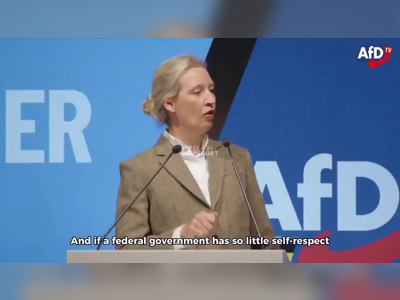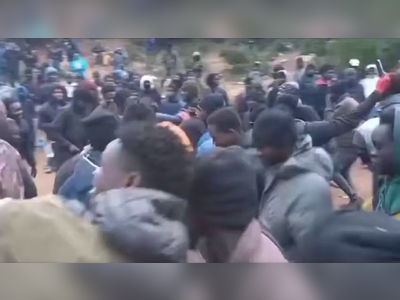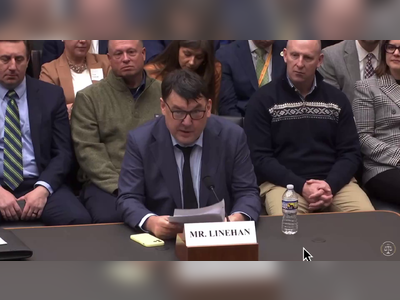Magdeburg Attack: Radicalization and Oversight in Focus amid Chaotic Complexities
Alleged attacker, a Saudi-born doctor, reveals intricate path of growing Islamophobia and grievances towards Germany's immigration policies.
In the aftermath of the shocking incident in Magdeburg, Germany, questions abound regarding the motives behind the attack allegedly carried out by Taleb A., a Saudi-born physician.
As investigative journalist Martin Kaul of WDR explains, the emerging portrait of Taleb A.
is one of complexity, underscored by an escalating radicalization against Islam.
Despite the absence of definitive clarity around the attacker's motives, available evidence suggests a disturbing alignment with Islamophobic ideologies, potentially fueled by psychological instability.
Taleb A., whose activities had not previously placed him on the radar of German security services as an Islamist threat, paradoxically fashioned himself as a vocal critic of Islam.
His online presence was marked by scathing critiques of the religion he reportedly renounced.
Kaul elucidates that Taleb A.
harbored strong opinions against the German government's immigration policies, particularly targeting the influx of Muslims into the nation.
His recent foray into international media included an interview with a propaganda outlet associated with President-Elect Donald Trump's circle, where he also expressed affinities for the Alternative for Germany (AfD) party.
Adding to the growing unease, there are "initial indications of revenge plans and possible schematics for an attack that warrant careful investigation," Kaul added.
The journalist highlighted a pattern of warnings submitted to various authorities regarding Taleb A.'s online posts, underscoring a critical lapse in security oversight: "There were a series of alerts, which implies the security agencies should have had this individual on their radar."
Though the current findings paint a multifaceted and opaque picture, Kaul urges caution against premature conclusions, advocating for comprehensive scrutiny to unravel the myriad threads of this unfolding narrative.
The situation calls for an astute management of complex social and investigative dynamics, as authorities strive to decipher the tangled web of beliefs and grievances that might have precipitated this alarming act.
As investigative journalist Martin Kaul of WDR explains, the emerging portrait of Taleb A.
is one of complexity, underscored by an escalating radicalization against Islam.
Despite the absence of definitive clarity around the attacker's motives, available evidence suggests a disturbing alignment with Islamophobic ideologies, potentially fueled by psychological instability.
Taleb A., whose activities had not previously placed him on the radar of German security services as an Islamist threat, paradoxically fashioned himself as a vocal critic of Islam.
His online presence was marked by scathing critiques of the religion he reportedly renounced.
Kaul elucidates that Taleb A.
harbored strong opinions against the German government's immigration policies, particularly targeting the influx of Muslims into the nation.
His recent foray into international media included an interview with a propaganda outlet associated with President-Elect Donald Trump's circle, where he also expressed affinities for the Alternative for Germany (AfD) party.
Adding to the growing unease, there are "initial indications of revenge plans and possible schematics for an attack that warrant careful investigation," Kaul added.
The journalist highlighted a pattern of warnings submitted to various authorities regarding Taleb A.'s online posts, underscoring a critical lapse in security oversight: "There were a series of alerts, which implies the security agencies should have had this individual on their radar."
Though the current findings paint a multifaceted and opaque picture, Kaul urges caution against premature conclusions, advocating for comprehensive scrutiny to unravel the myriad threads of this unfolding narrative.
The situation calls for an astute management of complex social and investigative dynamics, as authorities strive to decipher the tangled web of beliefs and grievances that might have precipitated this alarming act.
Translation:
Translated by AI
AI Disclaimer: An advanced artificial intelligence (AI) system generated the content of this page on its own. This innovative technology conducts extensive research from a variety of reliable sources, performs rigorous fact-checking and verification, cleans up and balances biased or manipulated content, and presents a minimal factual summary that is just enough yet essential for you to function as an informed and educated citizen. Please keep in mind, however, that this system is an evolving technology, and as a result, the article may contain accidental inaccuracies or errors. We urge you to help us improve our site by reporting any inaccuracies you find using the "Contact Us" link at the bottom of this page. Your helpful feedback helps us improve our system and deliver more precise content. When you find an article of interest here, please look for the full and extensive coverage of this topic in traditional news sources, as they are written by professional journalists that we try to support, not replace. We appreciate your understanding and assistance.











